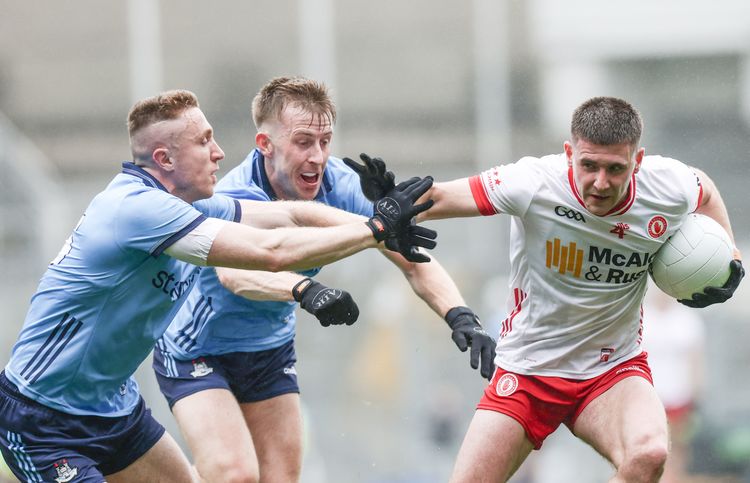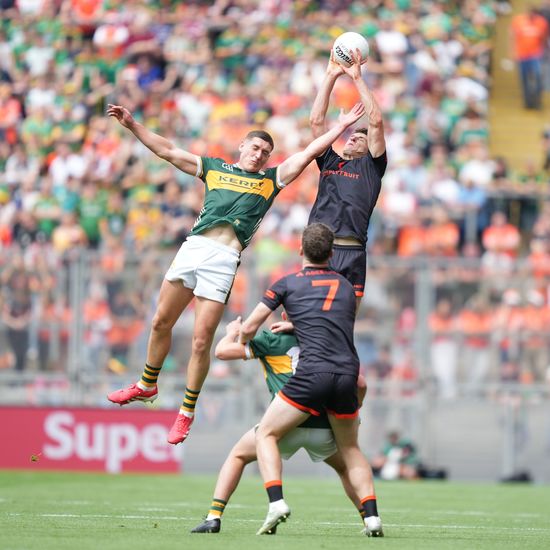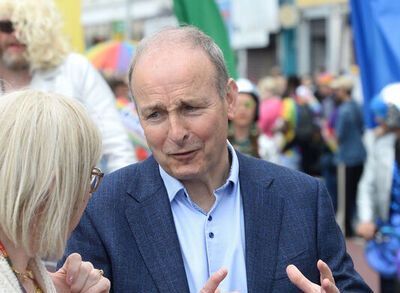Senator John McCain won the New Hampshire primary on the Republican side in 2008.
Between the Lines / By Peter McDermott
Eight years ago, on a trip to New Hampshire, I heard a political scientist say that Rudy Giuliani just didn’t get it. He would fly in like a rock star and shake a few hands and fly out again. The former New York mayor made the trip frequently, to be sure, but those appearances did not amount to an effective campaign in the Granite State. “Here it’s all about retail politics,” Prof. Andrew Smith said.
Among the articles I read in recent days about the primary was one entitled "Are the media killing the New Hampshire primary?" Professor Linda Fowler of Dartmouth College explained at theconversation.com how New Hampshire's smaller scale has worked to the benefit of the entire process -- or at least did.
“Retail politics is still happening in New Hampshire’s 2016 primary, but something is amiss with the Republican contest,” Fowler argued. “Donald Trump’s celebrity status made him the immediate front-runner in the polls last summer with voters who were not paying attention to the nominating contest.”
The state was voting as the Echo went to press, and so, too early to test her analysis that the 100-year-old New Hampshire institution was in jeopardy
Still, the Dartmouth professor ended on a hopeful note. “The state—and the nation—can hang on to something precious, at least for a while longer,” she said. “By resisting the media’s and their polls’ distorted coverage of this election.”
I have to confess I was there as part of a media entourage in 2008 – albeit one at very much the retail end of things. I traveled with several others who were foreign-born and working for New York-based community publications. The newer Americans, in addition to myself, were from Polish, Bangladeshi, Chinese, Pakistani, English, Russian (Jewish), and Arab (Christian) backgrounds. We had a wonderful opportunity to see this world-famous institution, the New Hampshire primary, up close and to meet voters and see the candidates at work.
I remember Senator John McCain (the winner of the state’s GOP primary the following day and the nomination eventually) addressing an open-air evening meeting. “Irish for McCain” posters were much in evidence, as were signs proclaiming support for Ron Paul. After he made his remarks to the good-natured crowd, the candidate and his wife negotiated a narrow, snow-covered pathway for the 200 yards or so to a waiting car.
President Reagan was the first president democratically elected
twice with a popular majority of the votes cast.
I saw Mitt Romney, standing on a table in a school-room, push all of the anti-immigrant buttons with some effectiveness. I recall one man of about 60 turning to his wife with a look of horror on his face. “It’s not right,” he said, presumably in reference to the hordes crossing the border. The Romney approach, though, made him the least sympathetic candidate with our group.
Some of the group got to a Hillary event and one shook hands with her husband, the ex-president. All got to hear Senator Barack Obama in a large high-school auditorium packed with young people of college age. “Hope” and “change” got mentioned, naturally. But what impressed me was the reference to “Pinkerton thugs.” I couldn’t recall ever hearing a candidate talk about America’s often violent labor history.
Obama’s candidacy was notable in several other respects. He would later that year become the first elected president since Andrew Jackson who’d had a foreign-born parent. His father was an African, as we know, and his mother a white Kansan. Of more than symbolical importance, too, is the fact that his wife, First Lady Michelle Obama, and her children are the descendants of American slaves.
Four years later, Obama would become the first of his party to be democratically elected, a second time, with a majority of the popular votes cast. Ronald Reagan was the first so honored, and the only Republican.
During Obama’s first term, it was often asked by some within his party why he couldn’t be more aggressive, like FDR for instance, the greatest of all Democratic presidents, in taking on his enemies. Roosevelt, however, had been given a thumping mandate by a traumatized nation in 1932, and he had the backing of Congress and enormous political capital. He won three more elections with ease, although his difficulties with the legislative and judicial branches would grow.
FDR’s coalition of support was to remain solid enough – including as it did the white Southern bloc in his own party.
But given that millions of natural-born citizens were prevented from voting, how can we say that he was democratically elected?
In a televised address in 1963, President Kennedy said “that the rights of every man are diminished when the rights of one man are threatened.”
He continued: “One hundred years have passed since President Lincoln freed the slaves, yet their heirs, their grandsons, are not fully free.”
JFK would not live to see America enter the community of free nations whose constitutional systems are based upon the guarantee of the right to vote.
We still have plenty of gerrymandering in the United States and the naked buying of influence is certainly disturbing. We know from Northern Ireland how the former issue can cause major problems. But the U.S. was pretty much unique in the West in its failure to protect voting rights in elections for national offices and legislative bodies, and continued to be over a long period of its history.
That’s worth remembering when you hear people talk about how it used to be so much better in the good old days of retail politics. It wasn’t always.










